No Products in the Cart
Ashima Yadav, a psychology student at Christ University, India, seamlessly combines academic pursuits with freelance content writing. Read more
Last Updated July 10, 2025
Do you have difficulty falling asleep at night? Do you feel tired throughout the day? If so, you might have a circadian rhythm disorder. Keep reading this article to learn about circadian rhythm and how it affects your sleep.

Key Takeaways:
Circadian rhythm, or circadian clock, is a 24-hour cycle that influences various physiological functions of our body, including the sleep-wake cycle. It works by responding to light changes in our environment. Because of this, we feel sleepy at night and alert in the morning. Any disruptions in the circadian system will affect your sleep pattern and, in turn, disrupt your day-to-day life.
Disruption of circadian regulation can cause problems like difficulty falling asleep, waking up several times during the night, extreme drowsiness during the morning, etc. Apart from disrupting your sleep-wake cycle, circadian rhythm can also affect your body temperature, appetite, hormones, and other bodily functions. The disorders resulting from these disruptions in circadian rhythms are referred to as circadian rhythm disorders.
As we said in the beginning, circadian rhythms are like internal clocks that help our bodies run smoothly throughout the day and night. These rhythms are found in all living things. They help flowers bloom at the right time and keep animals safe by telling them when to stay hidden from predators.
In humans, circadian rhythms keep our mental and physical functions in sync. For example, they tell our digestive system when to make proteins for digestion and regulate our hormones for energy.
Our body's internal clock is located in the brain, in a part called the suprachiasmatic nucleus (SCN). This clock sends signals throughout the day to keep everything running smoothly.
The internal clock is very sensitive to light. Light tells it whether it's day or night, which helps it keep track of time. Other things, like exercise and temperature, can also affect our internal clock, but light is the most important factor.
When babies are born, they don't have a set sleep routine until they're a bit older. This means their sleep can be unpredictable in the beginning. But as they grow and get used to the world, their body learn to follow a natural sleep pattern.
Around 3 months old, babies start making a hormone called melatonin, which helps them sleep better. And between 2 to 9 months old, another hormone called cortisol also kicks in.
As toddlers and children get older, their bodies develop a more regular sleep schedule. Most kids need about 9 to 10 hours of sleep each night.
As teenagers grow up, their bodies change, including their sleep patterns. This change is called sleep phase delay. Unlike when they were younger and used to go to bed early, teens might not feel sleepy until much later at night.
Their bodies start releasing melatonin around 10 or 11 p.m., or even later, making them feel sleepy. Because of this, teenagers often need to go to sleep later in the morning. Even though they feel most tired between 3 and 7 a.m. or even later, they still need the same amount of sleep as they did when they were kids.
As people get older, they might notice changes in their sleep habits. Older adults may find themselves going to bed earlier than they used to and waking up very early in the morning. This is a normal part of aging for many people.
For adults who practice good habits, their sleep schedule is much steadier. By sticking to a regular routine and aiming for 7 to 9 hours of sleep each night, they can expect their bedtime and wake-up times to stay consistent. Most adults start feeling tired before midnight because their bodies release a hormone called melatonin. The times when adults feel the most tired are typically between 2 and 4 a.m. and 1 and 3 p.m.
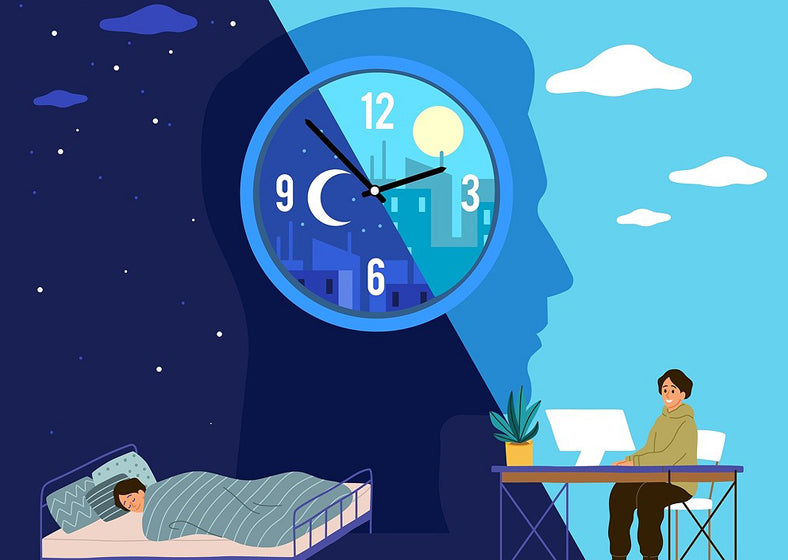
The biological clock refers to the internal mechanism of the body that works to maintain internal timing and schedules. It consists of a special molecular mechanism that interacts with every cell of the body to maintain the essential functions of life.
There are various biological clocks present in one's body, and circadian rhythm is one of them. However, not all biological clocks are circadian. Plants, for example, adjust to changing seasons through a biological clock that is different from the 24-hour cycle.
The leading cause of circadian disorders is the misalignment between the circadian clocks and the outside environment. This misalignment could occur because of external factors (like light exposure or travel through different time zones) as well as internal factors (like genetic predisposition).
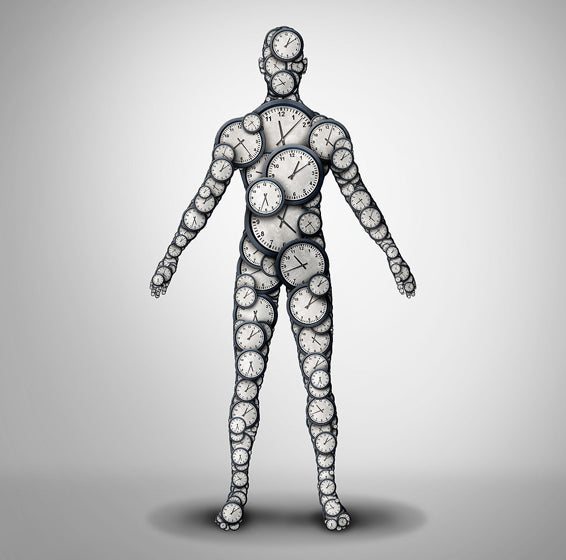
Some factors that may influence circadian rhythms are:
There are various types of circadian rhythm sleep disorders based on internal as well as external causes. The 6 major circadian rhythm sleep disorders are explained below.
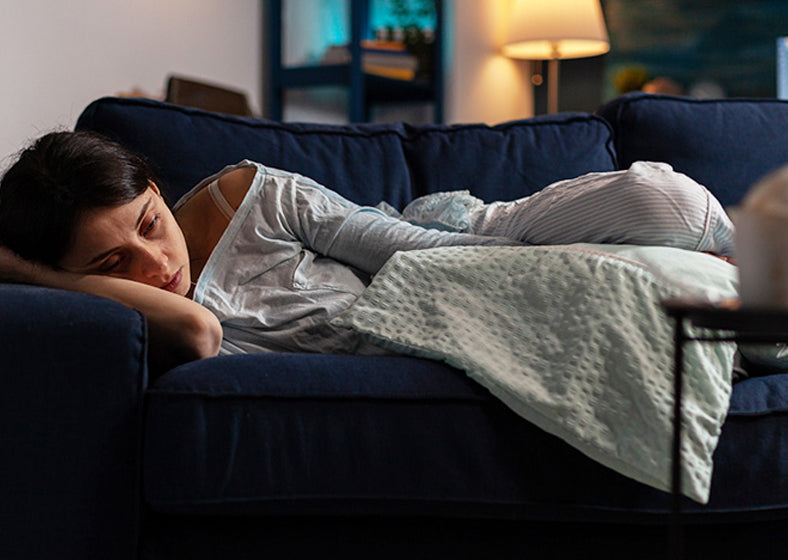
People suffering from Delayed Sleep Phase Disorder have a delayed sleep schedule. This sleep disorder is typically associated with 'night owls' who go to sleep and wake up at least one to two hours after the normal sleep-wake cycle. It is more common among teenagers and young adults as compared to the general population.
People with DSPD tend to have trouble falling asleep at night and have excessive daytime sleepiness. This results in unproductiveness during the day and significantly affects the ability to perform daily tasks.
Advanced Sleep Phase Disorder is the complete opposite of DSPD. People with this sleep disorder feel sleepy early in the evening and wake up very early in the morning. They can't stay up late at night or sleep until late in the morning, even if they want to.
This can be associated with 'morning birds' who are more productive during the morning and get tired by late afternoon or early evening. People with this disorder may have complaints of early morning insomnia. This disorder is more common in older adults as compared to others.
In irregular sleep-wake rhythm disorder, there is no day-night cycle of sleep. Instead, people affected by this disorder take several naps throughout the period of 24 hours. The symptoms of this disorder are chronic insomnia, excessive sleepiness, or both.
It is a very rare disorder that generally occurs in people who have some neurological conditions that affect the normal functioning of the body's master clock (which controls and coordinates the biological clocks of the body) in the hypothalamus. It is generally seen in people with dementia, Alzheimer's, children with intellectual disabilities, and people who have suffered traumatic brain injuries.
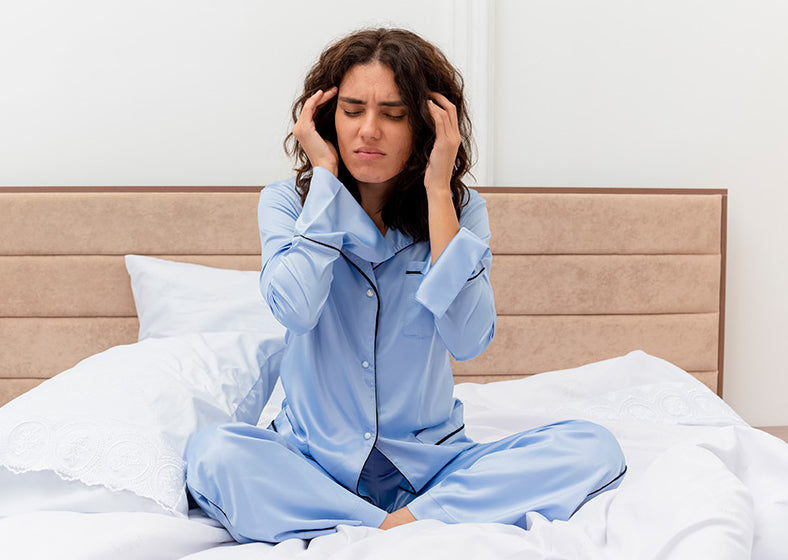
In non-24-hour sleep-wake disorder, the sleep-wake cycle length is consistent, but the circadian rhythm or the internal body clock is longer than 24 hours. This way, even though they are sleeping for the same amount of time, the cycle keeps moving backward, which results in them sleeping later and later every night. Eventually, it could lead to sleeping during the day, disrupting normal functioning.
This disorder is primarily seen in blind people because they cannot transmit light signals, which play a crucial role in the sleep-wake cycle. Without the light cue from the environment, the body's internal clock gets confused, resulting in a longer than 24-hour sleep-wake cycle.
Jet lag is a little more common than the disorders discussed above. It affects people who travel across two or more time zones in a short span of time. The body requires time to adjust to the new time; usually, it takes a few days to adjust to the time zone difference.
The symptoms include a change in appetite and gastrointestinal issues, along with a feeling of tiredness and mood disturbances. Eastward travel is easier to adjust to as compared to westward travel because it is easier for a person to delay sleep rather than advance it.

Shift-work disorder is experienced by people whose jobs require them to work outside the typical 9 to 5 schedule, mostly on the night shift. The severity of this disorder depends on whether it is a fixed shift or a rotating shift.
Fixed shift work is more preferable because the body can get habituated to the work time if the same schedule is followed for a period of time. On the other hand, if it is a rotating shift, then clockwise rotation (day to evening to night) is preferred because it is easier to adjust to delayed sleep time.
Shift workers face excessive sleepiness, insomnia, tiredness, mood disorders, etc. due to this disorder. It also includes other risks such as substance abuse, weight gain, high blood pressure, and heart disease.

Circadian rhythm sleep disorders create so many disturbances in a person's life. They can affect your ability to fall asleep, stay asleep, or wake up in the morning. Some of the common symptoms of circadian rhythm sleep disorder are:
If you have any of the above symptoms and they are significantly affecting your day-to-day life, you should consult a healthcare professional to figure out the underlying cause and develop a treatment plan.
For the diagnosis of circadian rhythm sleep disorders, your sleep specialist will ask you questions regarding your sleep schedule, symptoms, and work schedule and perform a physical exam. The specialist may also ask you to keep a sleep diary for a week or two. A sleep diary is a record of the time you went to sleep and woke up and anything related to your sleep schedule. Another device used to track periods of sleep and wakefulness is an actigraph, a sensor worn like a wristwatch.
If needed, the specialist may also recommend a sleep study. A sleep study involves sleeping under observation, wherein your heart rate, breathing, brain waves, etc., are monitored. This observation helps in ruling out any other conditions (like sleep apnea or narcolepsy) that may be disrupting your sleep.
For the treatment of circadian rhythm sleep disorders, your healthcare specialist will develop a personalized treatment plan for you. The treatment can include using sleep medicine, light exposure, chronotherapy, and lifestyle changes.
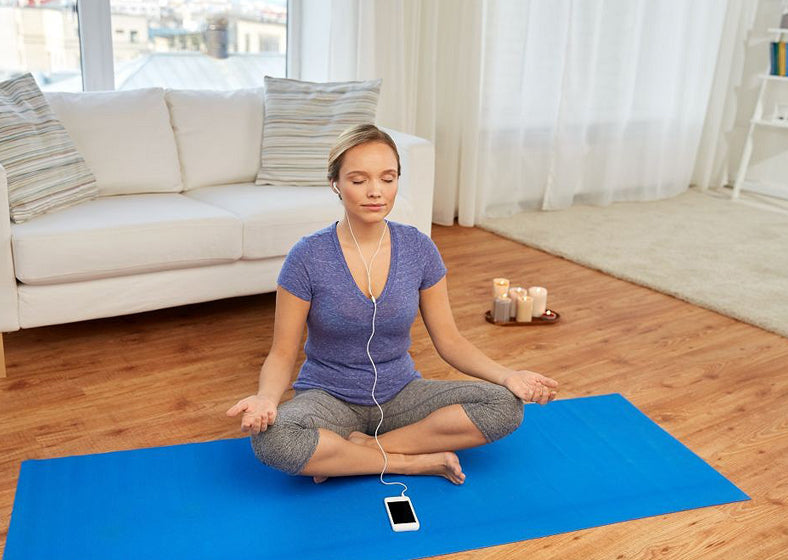
Besides the treatment of these sleep disorders, following sleep hygiene practices can also help. Small changes in your daily routine, like following a consistent sleep schedule, doing relaxation activities before sleep, not using blue light 2 hours before bedtime, avoiding caffeine, etc., can all help in reducing the symptoms of circadian rhythm disorders.
Circadian rhythm disorders can cause many disturbances in your life. The symptoms include difficulty in falling and staying asleep, daytime tiredness, fatigue, decreased concentration, disorientation, etc.
The treatments for circadian rhythm disorders include medications, bright light therapy, chronotherapy, and lifestyle changes. Your doctor will suggest a blend of these treatments as per your requirements.
For the diagnosis of circadian rhythm disorders, your doctor will ask you questions surrounding your sleeping habits and sleep schedule. Additionally, for one to two weeks, the doctor might ask you to maintain a sleep journal. If needed, they may also suggest a sleep study, wherein one is required to sleep under observation. Your heart rate, body temperature, brain waves, and other related things are measured during the study.
Related blog posts:
1. What to Do When You Can’t Sleep?
2. How to Increase Deep Sleep?
5. Dreams
Disclaimer: What is said in this article has been referenced from multiple sources and is intended only for educational and informational purposes. Please note that no content in this article is a substitute for professional advice from a qualified doctor or healthcare provider. Always consult an experienced doctor with any concerns you may have regarding a health condition or treatment, and never disregard any medical suggestions or delay in seeking treatment because of something you read here.
Notify me when available
We will send you a notification as soon as this product is available again.
We don't share your email with anybody


